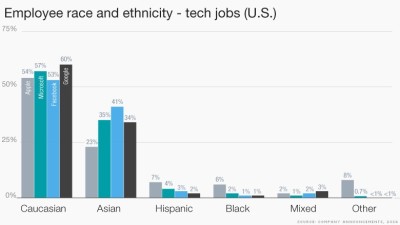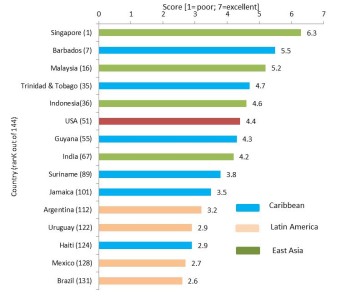The Caribbean can and should position itself to make the most of emerging changes in the global tech landscape.
That’s the position of Sir Hilary Beckles, Vice Chancellor of the University of the West Indies, who is calling for a stronger focus on Science, Technology, Engineering and Mathematics education, commonly called STEM.
A statement issued by the university described the ongoing efforts of Silicon Valley giants to deal with the lack of racial diversity in the global tech industry as an opportunity for the Caribbean region, which has a relatively small but very diverse population.
 “A conscious investment in greater math and science literacy is required to enable Caribbean competitiveness and increase technological innovation, if the region is to make good on the potential locked in its younger generations,” the statement said.
“A conscious investment in greater math and science literacy is required to enable Caribbean competitiveness and increase technological innovation, if the region is to make good on the potential locked in its younger generations,” the statement said.
So, how well has the region been doing in STEM subjects? Not so well, according to figures from the World Economic Forum’s latest Global Competitiveness Index 2014-2015. Barbados is the highest ranked country in the Western Hemisphere at seventh, when measuring the quality of math and science education. But the rest of the region lags behind: Trinidad and Tobago ranked 35th, Guyana 55th, Suriname 89th, Jamaica 101st, and Haiti 124th.
 “We know that we need to generate a larger number of STEM graduates, at all levels, in all disciplines,” Beckles is quoted as saying.
“We know that we need to generate a larger number of STEM graduates, at all levels, in all disciplines,” Beckles is quoted as saying.
“We…realise that the science and technology infrastructure of Caribbean society and civilisation needs to be developed.”
But the challenges, Beckles said, remain deep-rooted in the region’s secondary education system.
“The plumbing is broken in the basement,” he said.
Beckles, who is also chairman of the Caribbean Examinations Council (CXC), described secondary students’ results in the computational and mathematical subjects as “very disturbing”.
“We are very concerned about the inadequate performance of our teenagers in the secondary schools. And if we have a suppressed performance in these disciplines at the secondary level, we can continue to expect problems in growing enrolment at the tertiary level.”

 eCommerce1 year ago
eCommerce1 year ago